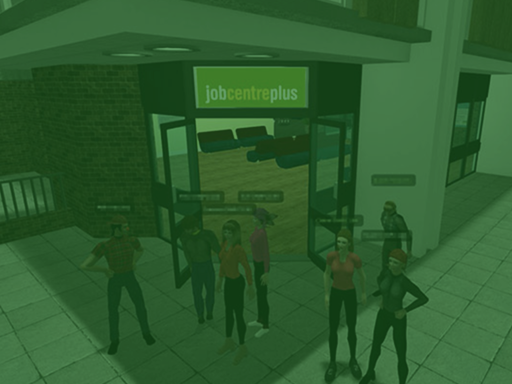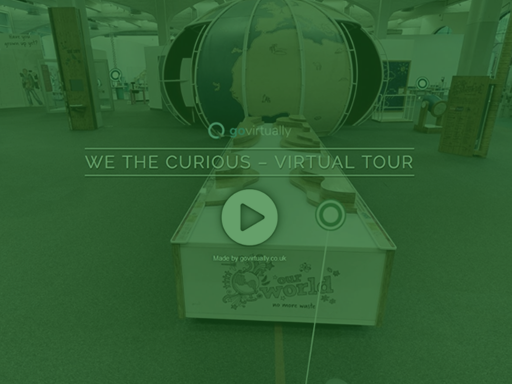Research Areas

Autism and Virtual Reality
We are developing innovative solutions for autistic groups that involve virtual reality and head-mounted displays. This includes the design, development and application of tools in classrooms and local centers. Lines of enquiry include aspects related to safe and ethical use, in addition to sense of presence, immersion and usability. We are especially keen to develop evidence for specific applications of VR with this group in supporting daily living and independent living skills. With more than 1 in 54 people with an autism diagnosis in the U.S. there is an urgent need to assess the role of advanced technologies with a view to supporting long-term positive outcomes.
More Information
- Brief Report: A Pilot Study of the Use of a Virtual reality Headset in Autism Populations (Article) (PDF)
- Using Virtual Reality Head-Mounted Displays in Schools with Autistic Children: Views, Experiences, and Future Directions (Article) (PDF)
- The Acceptance, Challenges, and Future Applications of Wearable Technology and Virtual Reality to Support People with Autism Spectrum Disorders (Book Chapter) (Online Link)
- Autism and Technology 2018 (Conference) and Presentation Slides
- Immersive Virtual Reality as a Tool for Autistic Pupils and Teachers (IVRAP) (Project) (2019-2022)
- Using Virtual Reality with Autistic Pupils: Information and Advice (Teacher’s Guide)

Employment and Access to Services via Advanced Technology
This strand is concerned with the need to provide access to services that can help to support people with neurodiversity in employment. This theme has supported the design and development of virtual technologies to support routes to employment (i.e. virtual / online employment centers). This theme seeks to explore advanced learning technologies and ways to deliver content via virtual reality to support employment skills (i.e. virtual job interviews) in school/home-based settings. This is in addition to working with employers to develop more autism-friendly ways to involve and engage potential employees (again implementing VR).
More Information
- The Possibility and Importance of immersive Technologies During COVID-19 for Autistic People (Article)
- Virtual Reality May be a Help to Autistic Children in the Classroom (Newspaper Article)
- AUTUS, HA02.EU Foundation (Charity Dr Newbutt helped establish)
- School and Coffee Shop VR Example

Application and Co-Design of Learning Technologies
The co-design and co-creation of knowledge with autistic (and other groups) around the design of technologies that can support them is a key theme and area of work we undertake. This area is led by then PhD candidate, Dr Magkafa. Dr Magkafa has undertaken a co-design approach to a museum app with autistic children in the U.K, gaining insights to both the affordances and challenges in this area. Further work will include co-designing and evaluating a range of interfaces alongside technological outcomes afforded by adopting co-creation with neurodiverse groups.

Assistive Technologies to Support Autistic Learners
This work is supported by an EU Grant that Dr Newbutt is involved with. This pan EU and US project involves partners at MSU and across 20 countries in the EU (total grant value; $500,000). As Vice Chair, Dr Newbutt supports the Work Groups that seeks to uncover issues of abandonment and up-take in autistic communities. Working with industry (IBM, Microsoft, and others), stakeholders, parents and communities, this work will develop white-papers and state of the art reports to better inform this important area. Overall the aims are to: “Build an interdisciplinary, intersectoral pan EU and beyond (i.e. USA), network which will enhance social inclusion and empowerment of individuals with ASD and/or ID”.
More Information
- Advanced Social Inclusion Through Technology and Empowerment (a-STEP) (Project)
- Guest Editorial on Journal of Assistive Technologies
- Assistive Technologies for People with Disability: Education (United Nations Invited Talk) and Slides

Social and Robotics and Autism
A recent theme of ETRL is that of robots and the potential of this technology used with and by autistic pupils in schools. A recent grant captured by Dr Newbutt is assessing the views and perspectives of autistic groups in a school and involving them in the co-design of a social robot. Work is still in the initial stages and preliminary work underway.
More Information
- Integrating Social Robots into School Settings: Co-Designing Robot-Enhanced Spaces for Children with Autism (Slides)
- Socially Intelligent Robot Helps Autistic Somerset Pupils (News Article)
- Robot Helps Autistic Pupils to Make Human Friends (News Article) (The Times, UK).
- UNICEF Guidance on AI for Children: Application to the Design of a Social Robot For and With Autistic Children (Article)
